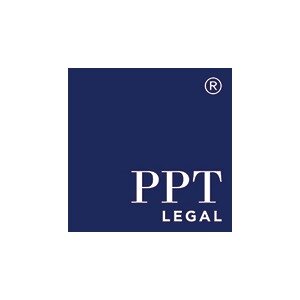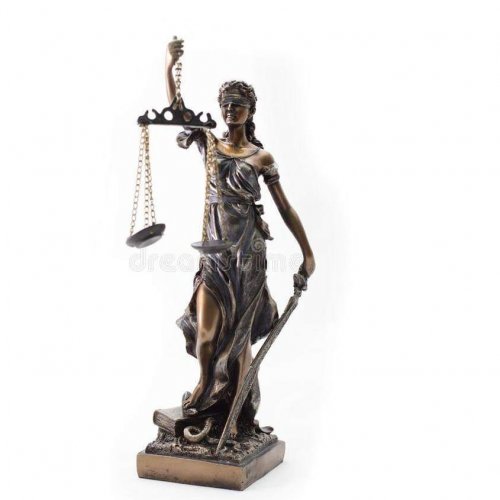Best Business Lawyers in Greece
Share your needs with us, get contacted by law firms.
Free. Takes 2 min.
Or refine your search by selecting a city:
List of the best lawyers in Greece
About Business Law in Greece
Business law in Greece encompasses a wide range of regulations and practices that govern business activities, emphasizing the importance of compliance and ethical operation. With a rich history and a strategic location in the southeastern part of Europe, Greece offers a vibrant business climate for both local and international investors. The Greek legal system is influenced by both continental and European Union law, which makes it essential for businesses operating in Greece to understand the local legal landscape. Key areas of focus include company formation, tax law, employment regulations, and commercial contracts.
Why You May Need a Lawyer
There are numerous situations where individuals and businesses may require legal assistance in Greece. Setting up a new business, acquiring or merging with another company, navigating complex tax regulations, drafting and negotiating contracts, dealing with employment issues, and resolving disputes are all scenarios where a lawyer’s expertise is invaluable. Legal professionals can provide guidance on compliance with local laws, protect your financial interests, and help prevent future legal issues by ensuring that agreements and transactions are executed properly.
Local Laws Overview
Several aspects of Greek law are particularly relevant to business operations. Company law in Greece allows for various forms of business structures, including sole proprietorships, partnerships, and corporations, each with distinct legal and tax requirements. Employment law is also critical, with regulations on employee rights, contracts, and workplace safety. Tax laws in Greece require businesses to comply with VAT, corporate tax, and other deductions. Additionally, commercial law governs contracts, sales, and trade practices, necessitating thorough understanding and compliance to operate effectively.
Frequently Asked Questions
What types of business structures can I choose from in Greece?
In Greece, common business structures include sole proprietorships, general and limited partnerships, limited liability companies (EPE), private company (IKE), and public limited companies (SA). Each structure has different legal and tax implications.
What are the tax obligations for businesses in Greece?
Businesses in Greece must pay corporate income tax, VAT, and possibly other taxes depending on the business activity. It is crucial to understand the tax calendar and comply with filing requirements to avoid penalties.
How do I register a business in Greece?
Registering a business in Greece involves selecting a business structure, choosing a company name, and registering with the relevant local authorities, which often includes the Chamber of Commerce and the tax office.
What are the key employment laws I should be aware of?
Greek employment law covers areas such as employment contracts, minimum wage, working hours, health and safety standards, social security contributions, and employee rights. Compliance is critical to avoiding legal disputes.
How are business contracts regulated in Greece?
Business contracts in Greece must comply with local commercial law, which includes regulations on formation, validity, execution, and termination of contracts. Legal advice is recommended to ensure enforceable and favorable terms.
What is the process for resolving business disputes in Greece?
Dispute resolution in Greece can proceed through negotiation, mediation, arbitration, or litigation. The method chosen often depends on the nature of the dispute and any existing contractual agreements.
Are there incentives for foreign investors in Greece?
Yes, Greece offers various incentives to attract foreign investment, including tax reliefs, grants, and subsidies, particularly in sectors like tourism, technology, and renewable energy.
What types of intellectual property protections exist in Greece?
Greece offers intellectual property protections for patents, trademarks, copyrights, and industrial designs, all of which are upheld by local and EU regulations.
Can I repatriate profits from Greece to another country?
Yes, international companies in Greece can repatriate profits, though they must comply with local tax regulations and pay any applicable taxes.
What should I know about GDPR compliance in Greece?
As part of the EU, Greece enforces GDPR compliance, requiring businesses to protect personal data and privacy of EU citizens. Penalties for non-compliance are significant.
Additional Resources
For those seeking legal guidance, the following resources may be helpful: the Hellenic Ministry of Development and Investment, the Athens Bar Association, and local Chambers of Commerce. Additionally, the Hellenic American Chamber of Commerce provides support for businesses operating between Greece and the United States.
Next Steps
If you require legal assistance in business matters in Greece, your next step should be to consult with a qualified lawyer who specializes in Greek business law. Look for legal professionals who have a good understanding of both local and EU regulations, as well as relevant experience in your industry. Scheduling an initial consultation can help you identify potential legal issues and develop a strategy for compliance and dispute resolution.
Lawzana helps you find the best lawyers and law firms in Greece through a curated and pre-screened list of qualified legal professionals. Our platform offers rankings and detailed profiles of attorneys and law firms, allowing you to compare based on practice areas, including Business, experience, and client feedback.
Each profile includes a description of the firm's areas of practice, client reviews, team members and partners, year of establishment, spoken languages, office locations, contact information, social media presence, and any published articles or resources. Most firms on our platform speak English and are experienced in both local and international legal matters.
Get a quote from top-rated law firms in Greece — quickly, securely, and without unnecessary hassle.
Disclaimer:
The information provided on this page is for general informational purposes only and does not constitute legal advice. While we strive to ensure the accuracy and relevance of the content, legal information may change over time, and interpretations of the law can vary. You should always consult with a qualified legal professional for advice specific to your situation.
We disclaim all liability for actions taken or not taken based on the content of this page. If you believe any information is incorrect or outdated, please contact us, and we will review and update it where appropriate.
Browse business law firms by service in Greece
Greece Attorneys in related practice areas.
Browse business law firms by city in Greece
Refine your search by selecting a city.
















